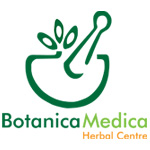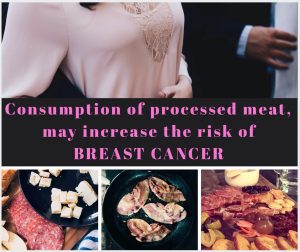Red and Processed Meat Consumption and Breast Cancer
This study is interesting as bacon and eggs are very much part of the Aussie weekend diet as is a cheese plate with cold meats, or our daily sandwich with ham.
* This population-based study examined the risk of breast cancer according to patterns of red and processed meat consumption. The authors used data from the UK Biobank (of 262,195 women, 4819 had developed breast cancer) and performed a meta-analysis of data collected from a systematic review of 10 previously published cohort studies (40,257 incident breast cancers in 1.65 million women).
* The meta-analysis showed that processed meat consumption was associated with overall breast cancer (RR,1.06). The Biobank data showed that the risk was increased in the highest tertile (>9 g/day) of processed meat consumption (aHR,1.21). Notably, red meat consumption was not associated with breast cancer.
– Neil Majithia, MD
AIM
Red and processed meat may be risk factors for breast cancer due to their iron content, administration of oestrogens to cattle or mutagens created during cooking. We studied the associations in UK Biobank and then included the results in a meta-analysis of published cohort studies.
METHODS
UK Biobank, a general population cohort study, recruited participants aged 40–69 years. Incident breast cancer was ascertained via linkage to routine hospital admission, cancer registry and death certificate data. Univariate and multivariable Cox proportional hazard models were used to explore the associations between red and processed meat consumption and breast cancer. Previously published cohort studies were identified from a systematic review using PubMed and Ovid and a meta-analysis conducted using a random effects model.
RESULTS
Over a median of 7 years follow-up, 4819 of the 262,195 women developed breast cancer. The risk was increased in the highest tertile (>9 g/day) of processed meat consumption (adjusted hazard ratio [HR] 1.21, 95% confidence interval [CI] 1.08–1.35, p = 0.001). Collation with 10 previous cohort studies provided data on 40,257 incident breast cancers in 1.65 million women. On meta-analysis, processed meat consumption was associated with overall (relative risk [RR] 1.06, 95% CI 1.01–1.11) and post-menopausal (RR 1.09, 95% CI 1.03–1.15), but not pre-menopausal (RR 0.99, 95% CI 0.88–1.10), breast cancer. In UK Biobank and the meta-analysis, red meat consumption was not associated with breast cancer (adjusted HR 0.99 95% CI 0.88–1.12 and RR 1.03, 95% CI 0.99–1.08, respectively).
CONCLUSIONS
Consumption of processed meat, but not red meat, may increase the risk of breast cancer.
At Botanica Medica our Naturopaths are well aware of the importance of a good diet and the effect it can have on your life both physically and mentally. They come across lots of interesting studies and are always updating their knowledge. If you would like to make an appointment with one of our Naturopaths call Botanica Medica on 8271-1827 today. They are only to happy to share the knowledge they have gained through their studies and patient outcomes, and get you feeling better. Botanica Medica is located at 97 Glen Osmond Road, Eastwood and appointments are available Monday to Saturday including some after hours.
Red and processed meat consumption and breast cancer: UK Biobank cohort study and meta-analysis
Jana J. Anderson, Narisa D.M. Darwis, Daniel F. Mackay, Carlos A. Celis-Morales, Donald M. Lyall, Naveed Sattar, Jason M.R. Gill, Jill P. Pell
the author Jill P. Pell
Published Online: December 21, 2017
European Journal of Cancer


Recent Comments